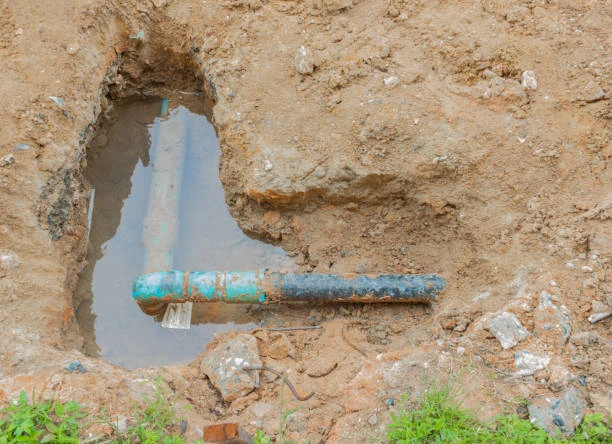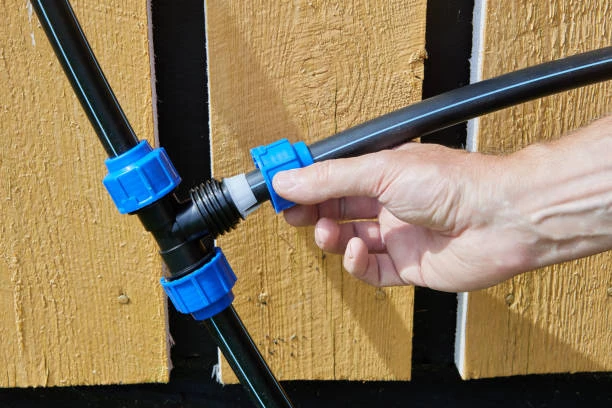Introduction
Water Pipe On June 9, a critical water main break occurred in our city, leading to significant disruptions in water supply and affecting residents and businesses alike. Water pipes are essential components of urban infrastructure, delivering potable water to homes and businesses. This article will explore the implications of the water main break, the response from local authorities, and the steps residents can take to navigate this challenging situation. Understanding the dynamics of water pipes and their importance in our daily lives is crucial as we work towards restoring normalcy.
Understanding Water Pipe
What Are Water Pipe?
Water pipes are crucial infrastructure components that transport treated water from treatment plants to consumers. They come in various materials, including:
- PVC (Polyvinyl Chloride): Lightweight and resistant to corrosion, commonly used in residential plumbing.
- Ductile Iron: Known for its strength and durability, often used in main water supply lines.
- Copper: Valued for its reliability and resistance to bacteria, frequently used in plumbing systems.
- Asbestos Cement: Previously used for its durability but often replaced due to health concerns related to asbestos exposure.
The Importance of Water Pipe
Water pipes are vital for public health and safety, providing access to potable water for hydration, sanitation, and fire protection. A failure in the water pipe system can lead to serious health risks and disruptions in daily life.
The June 9 Water Pipe Main Break: What Happened?
Incident Water Pipe Overview
On June 9, a critical water main break was reported in the downtown area, resulting in a significant loss of water pressure across the city. The break occurred during routine maintenance, leading to unforeseen complications that exacerbated the situation. Residents in affected areas experienced reduced water flow, discolored water, and, in some cases, complete water outages.

Immediate Water Pipe Impacts
The immediate impacts of the water main break were felt across various sectors:
- Residential Areas: Many households faced water supply interruptions, affecting daily activities such as cooking, cleaning, and personal hygiene.
- Businesses: Local businesses, especially those reliant on water for their operations, experienced disruptions that could lead to financial losses.
- Emergency Services: Fire departments and emergency services faced challenges due to reduced water pressure, impacting their ability to respond effectively to emergencies.
Response from Water Pipe Local Authorities
Emergency Measures
In response to the critical water main break, local authorities implemented emergency measures to address the situation. These included:
- Immediate Repairs: Crews were dispatched to the site of the break to assess the damage and begin repairs. The city prioritized restoring water service to affected areas.
- Public Communication: Local officials issued statements to inform residents about the situation, providing updates on repair progress and safety measures.
- Water Distribution: In areas without water supply, the city set up temporary water distribution points, providing residents with bottled water and access to clean water for essential needs.
- Monitoring Water Quality: The local water utility began monitoring water quality to ensure that any potential contamination from the break was addressed promptly.
Community Engagement
Local authorities encouraged community engagement during this crisis. Residents were urged to report any issues related to water quality or supply and to stay informed through official channels. Social media platforms and local news outlets played a crucial role in disseminating information and updates.
The Importance of
Regular Maintenance
Preventing Water Main Breaks
The June 9 incident highlights the importance of regular maintenance and inspection of water pipes to prevent future breaks. Aging infrastructure, material fatigue, and environmental factors contribute to the likelihood of water main breaks. Key strategies for preventing such incidents include:
- Routine Inspections: Conducting regular inspections of water pipes can help identify potential weaknesses and address them before they lead to failures.
- Upgrading Infrastructure: Investing in modern materials and technologies can enhance the durability and reliability of water pipes, reducing the risk of breaks.
- Public Awareness: Educating the community about the importance of water infrastructure can foster support for maintenance initiatives and funding.
What Residents Can Do
Staying Informed
Residents should stay informed during water main break incidents. Here are some tips for navigating the situation:
- Follow Official Channels: Monitor local news outlets, the city’s website, and social media for updates on the water main break and repair progress.
- Report Issues: If you experience water quality issues or supply interruptions, report them to your local water utility immediately.
- Prepare for Outages: Keep an emergency supply of water for drinking and sanitation in case of future outages. Having bottled water on hand can be beneficial during such incidents.
Health and Water Pipe Safety Precautions
During a water main break, residents should take certain health and safety precautions:
- Avoid Using Tap Water: Until the water quality is confirmed safe, avoid using tap water for drinking, cooking, or brushing teeth.
- Check for Advisories: Pay attention to any boil water advisories issued by local authorities, which may require boiling water before consumption.
- Use Bottled Water: Rely on bottled water for drinking and cooking until normal water service is restored and quality is confirmed.
The Path Forward
Restoration Efforts
As repairs continue, local authorities are focused on restoring normal water service as quickly as possible. The timeline for repairs will depend on the extent of the damage and the complexity of the repairs needed. Officials are working diligently to minimize disruptions and ensure the safety of the water supply.
Long-Term Solutions
In the aftermath of the June 9 water main break, discussions about long-term solutions for improving the city’s water infrastructure will be essential. This may include:
- Investment in Upgrades: Allocating funds for upgrading aging water pipes and infrastructure to enhance resilience against future breaks.
- Community Involvement: Engaging residents in discussions about water management and infrastructure improvements to foster a sense of ownership and responsibility.
- Sustainability Practices: Implementing sustainable practices in water management, such as promoting water conservation and exploring alternative water sources.
Conclusion
The critical water main break on June 9 has highlighted the importance of water pipes in our daily lives and the need for proactive measures to ensure their reliability. As local authorities work to restore normal service, residents are encouraged to stay informed and take necessary precautions. By investing in infrastructure and engaging the community, we can work together to build a more resilient water system for the future.
Frequently Asked Questions (FAQs)
1. What caused the water main break on June 9?
The water main break was caused during routine maintenance, leading to unforeseen complications that resulted in a significant loss of water pressure across the city.
2. How can I stay informed about water supply issues in my area?
Residents should monitor local news outlets, the city’s website, and social media channels for updates on water supply issues and repair progress.
3. What should I do if I experience water quality issues?
If you notice any water quality issues, report them immediately to your local water utility for assessment and assistance.
4. Is it safe to drink tap water during a water main break?
It is advisable to avoid using tap water for drinking, cooking, or brushing teeth until local authorities confirm that the water quality is safe.
5. What can be done to prevent future water main breaks?
Regular inspections, upgrading aging infrastructure, and public awareness about the importance of water management can help prevent future water main breaks.
















![PE Pipe Market Size, Share, Trend [2024-2032] Forecast Report PE Pipe Market](https://pipefittingblog.com/wp-content/uploads/2024/10/8cdda3b4892b4617b9072c650cb5ee0d.webp)
